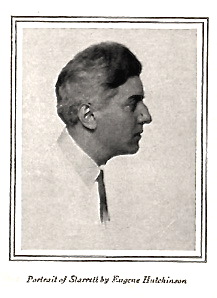Best. Day. Ever. Part II
In Part I, we looked at the féte the city of Chicago’s book-loving elite threw to celebrate one of their aging lions, Vincent Starrett.
To recap: For most of the speakers at the luncheon, Starrett had always been a part of the city’s literary scene. His first little volumes appeared in the late 1910s, his poems, essays on collecting and mystery short stories were popular in the 20s, the detective novels that established his reputation in the genre were popular in the 30s, and “Books Alive,” his weekly column about books and writers had been a mainstay of Chicago Tribune Sunday Magazine since the early 1940s. For them, Starrett was as much a Chicago institution as Kroch’s Book Stores and the Newberry library.
Among those honoring Starrett was a friend who knew him from a completely different perspective: Christopher Morley, who shared Starrett’s passion for the Sherlock Holmes stories.
Morley was not able to be present at the Chicago luncheon, but he sent a two-page letter to Louis Zara, the master of ceremonies. Up to now, you’ve only seen bits of that letter. But, through the magic of Baker Street Journal editor and good friend Steven Rothman (who knows more about Morley than Morley did and who has the library to back up that claim) we have a treat. With Steve’s blessing, we can reproduce that letter here.
When Steve sent it, he suggested that it be annotated for those who might not get the allusions. Here we go!
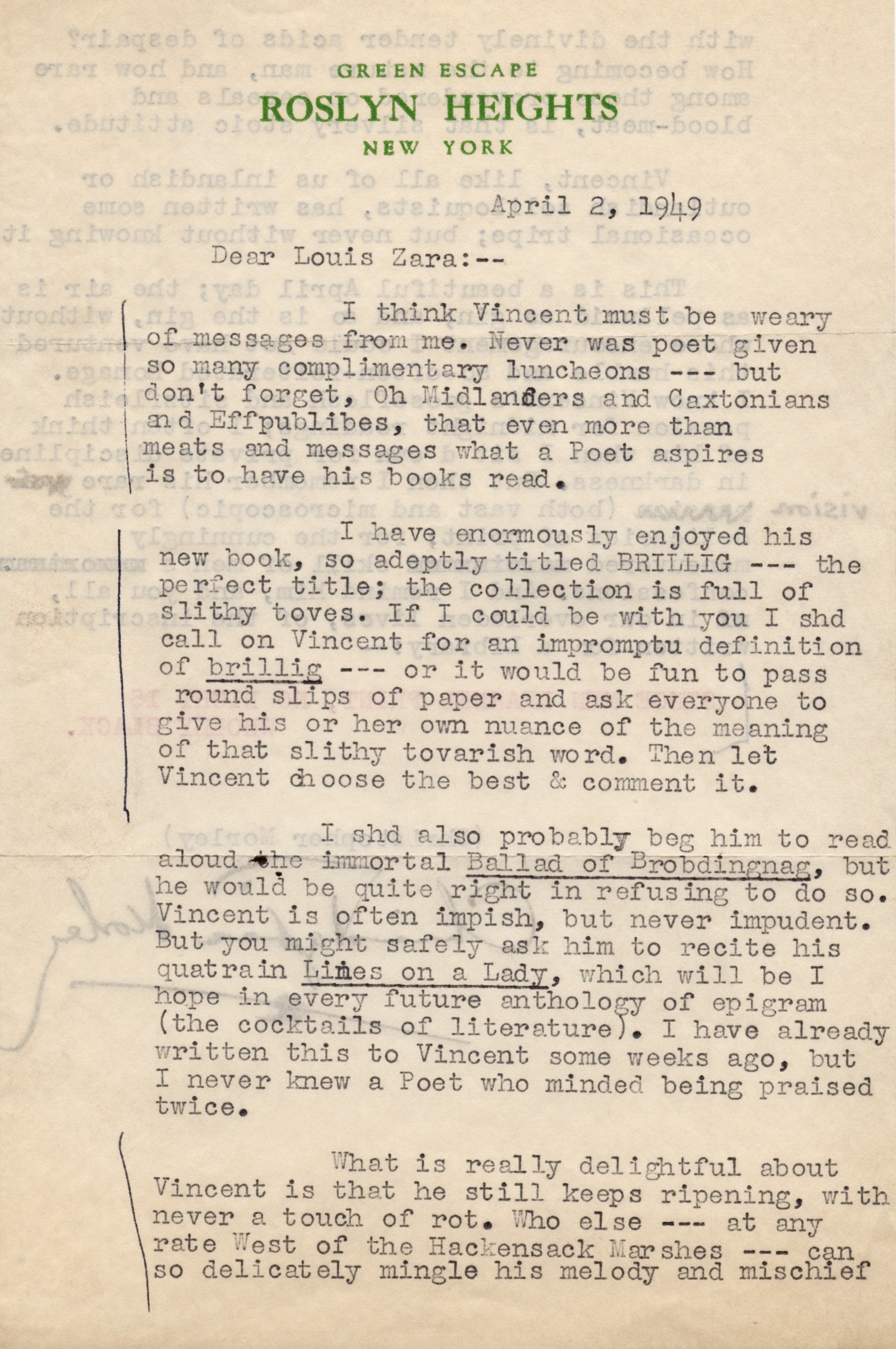
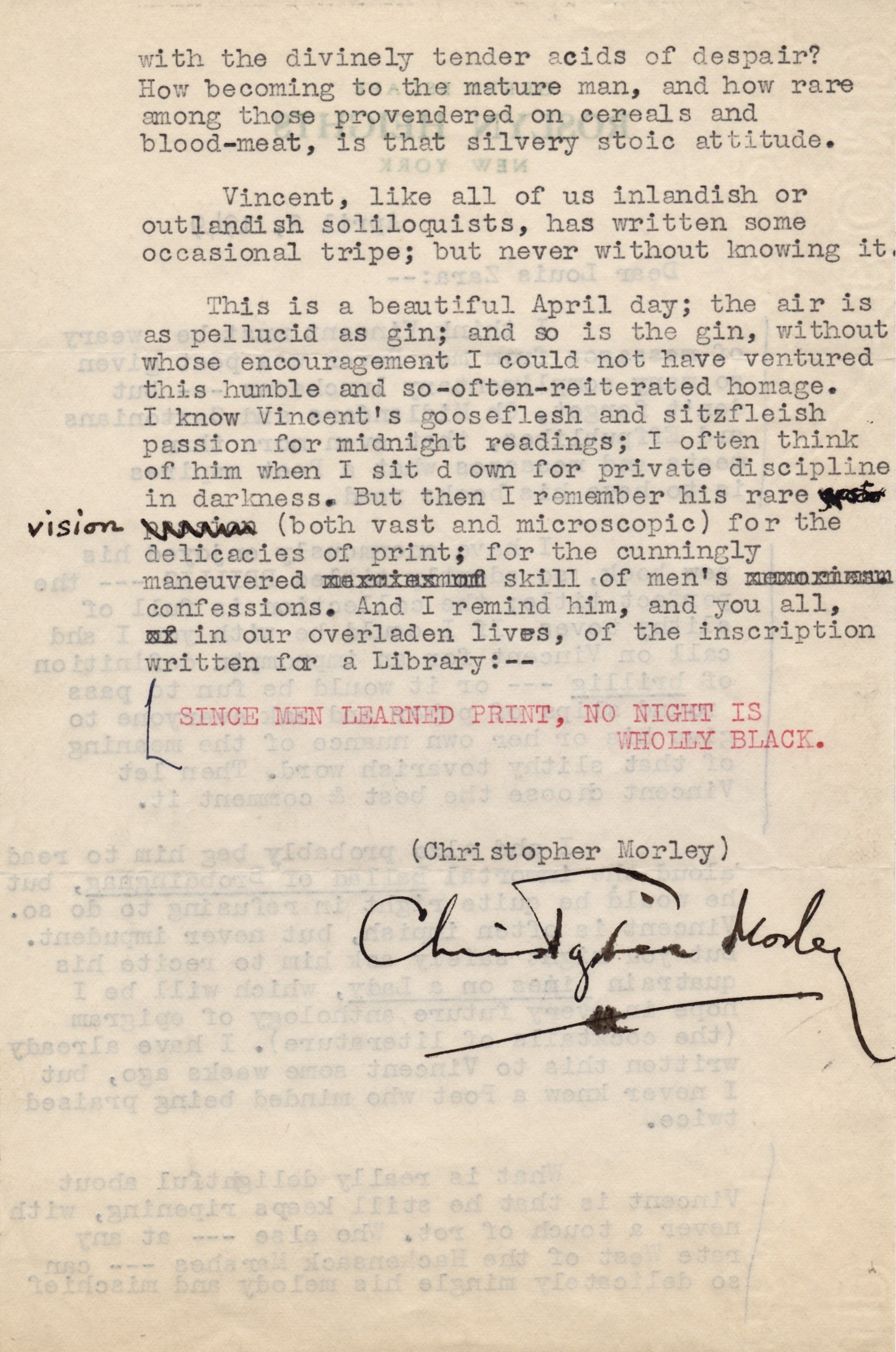
Now for the explications. We’re going to take this paragraph by paragraph, and I warn you now it’s going to take a while.
You might want to get another drink.
the first paragraph:
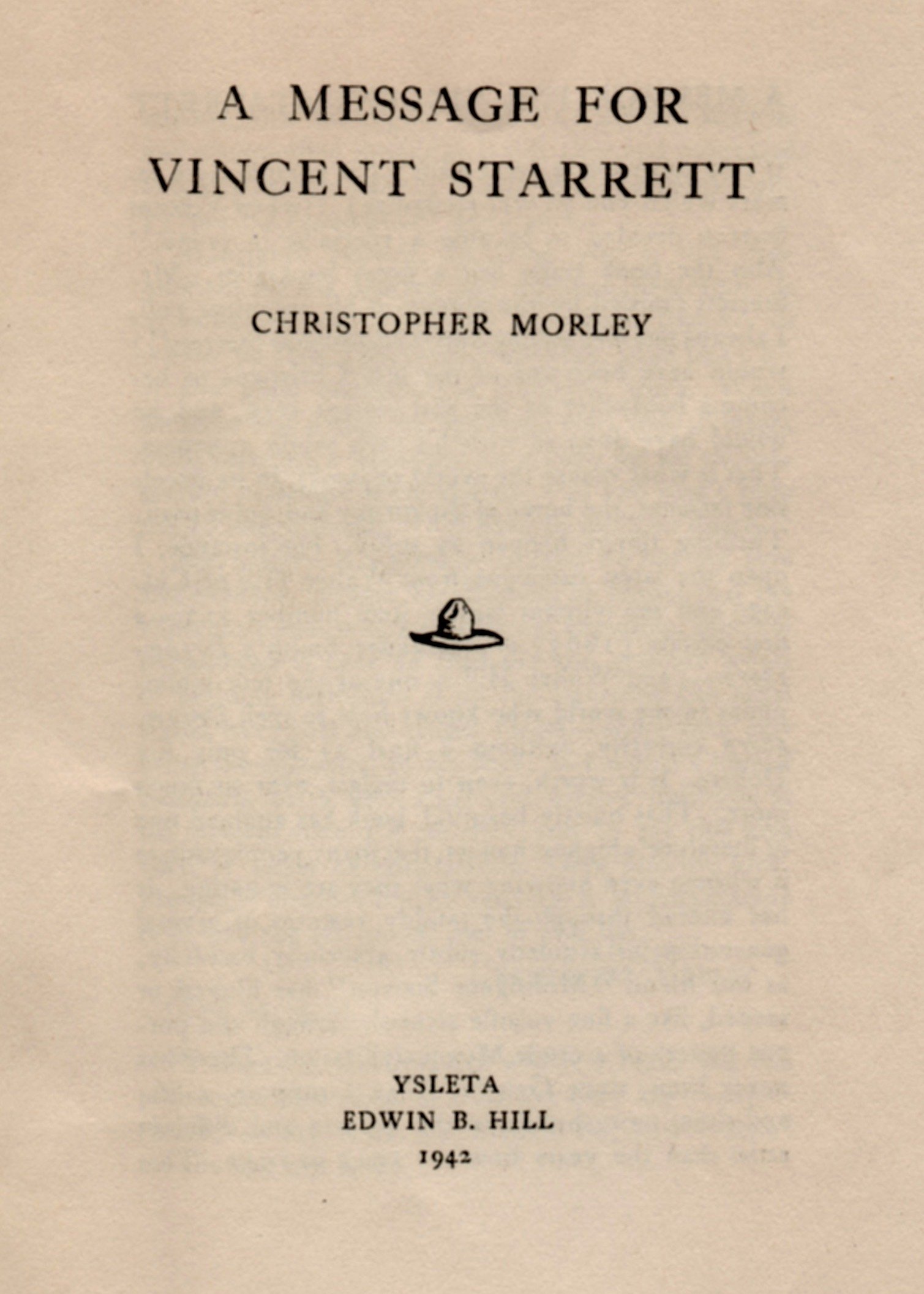
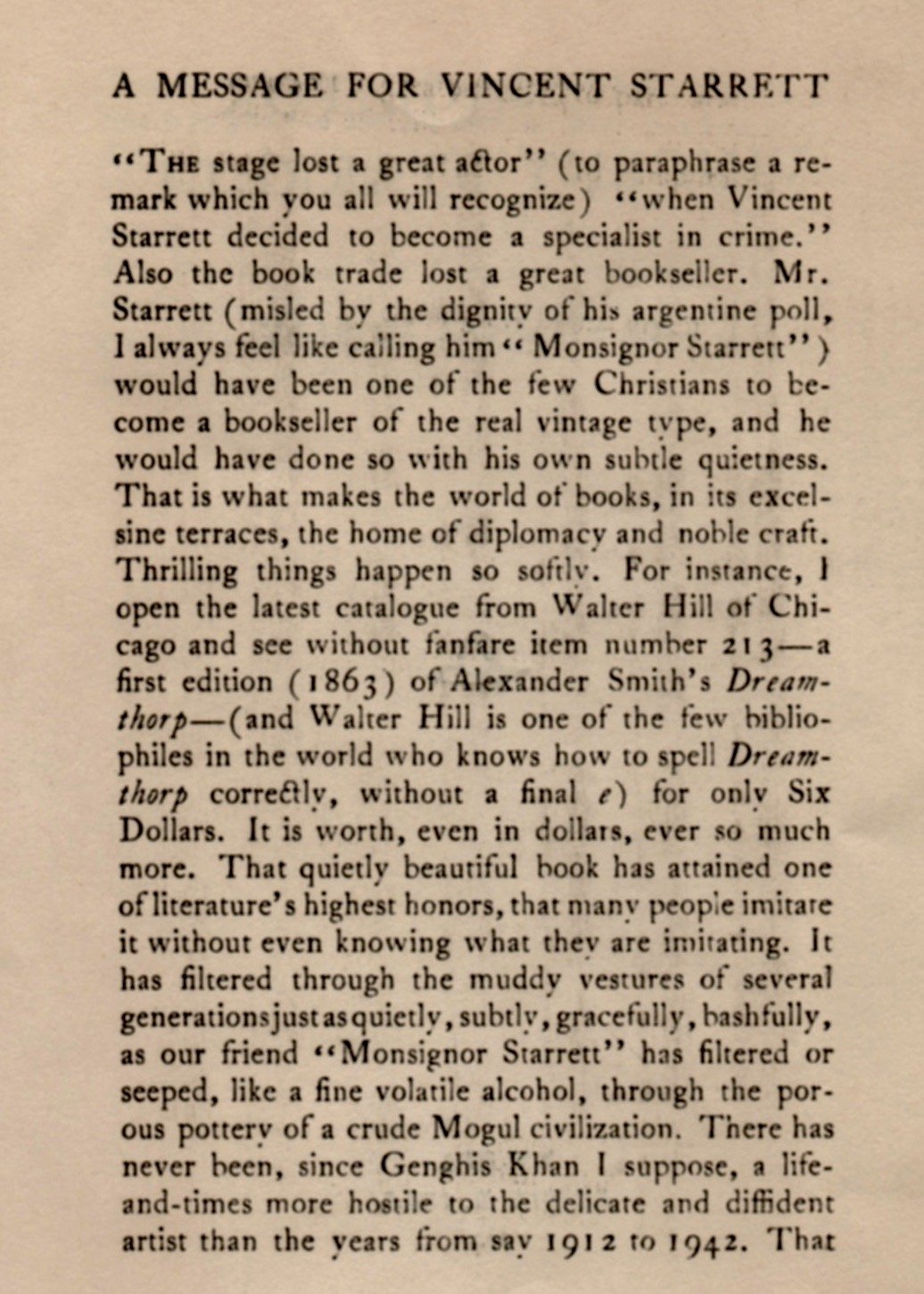
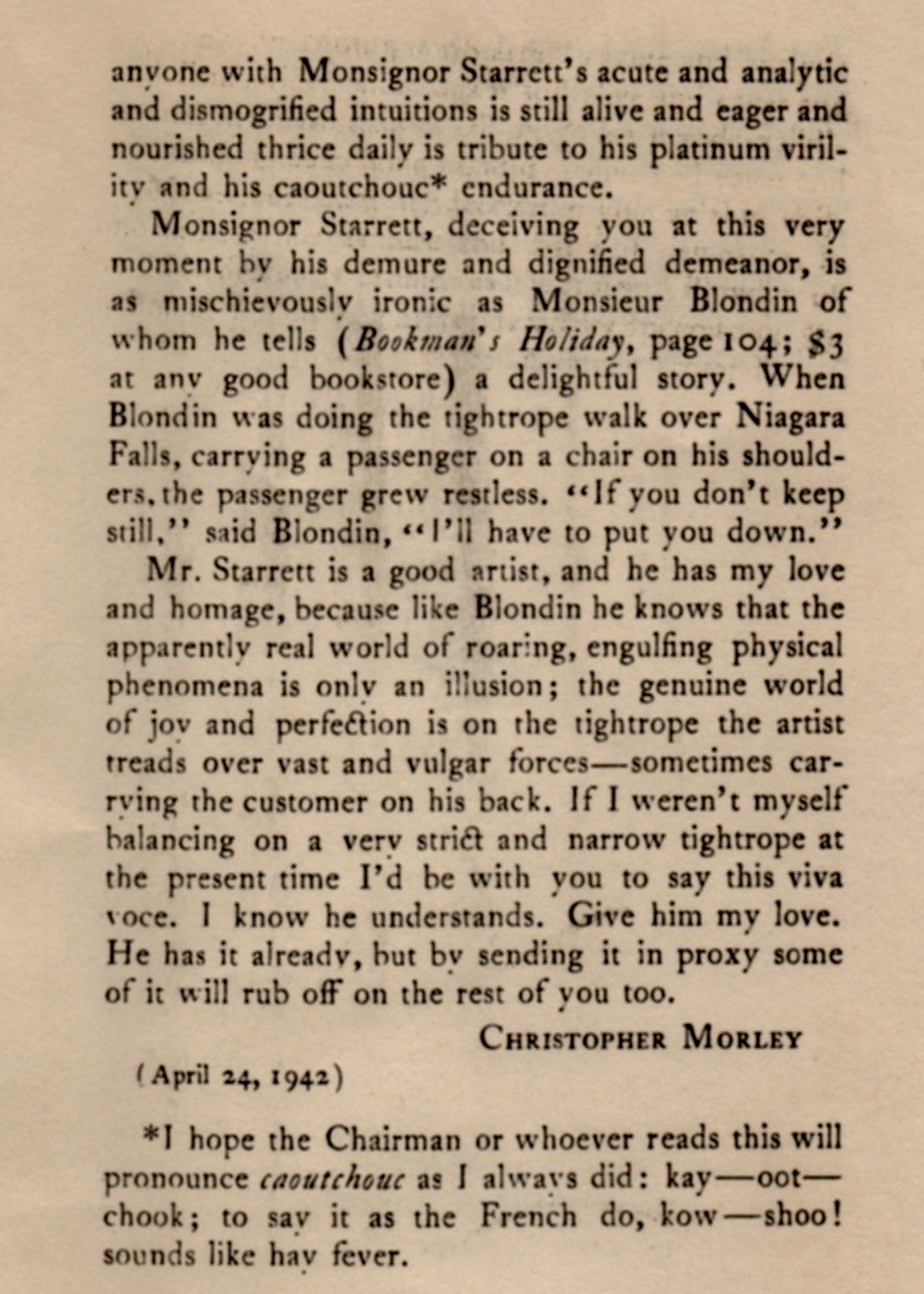
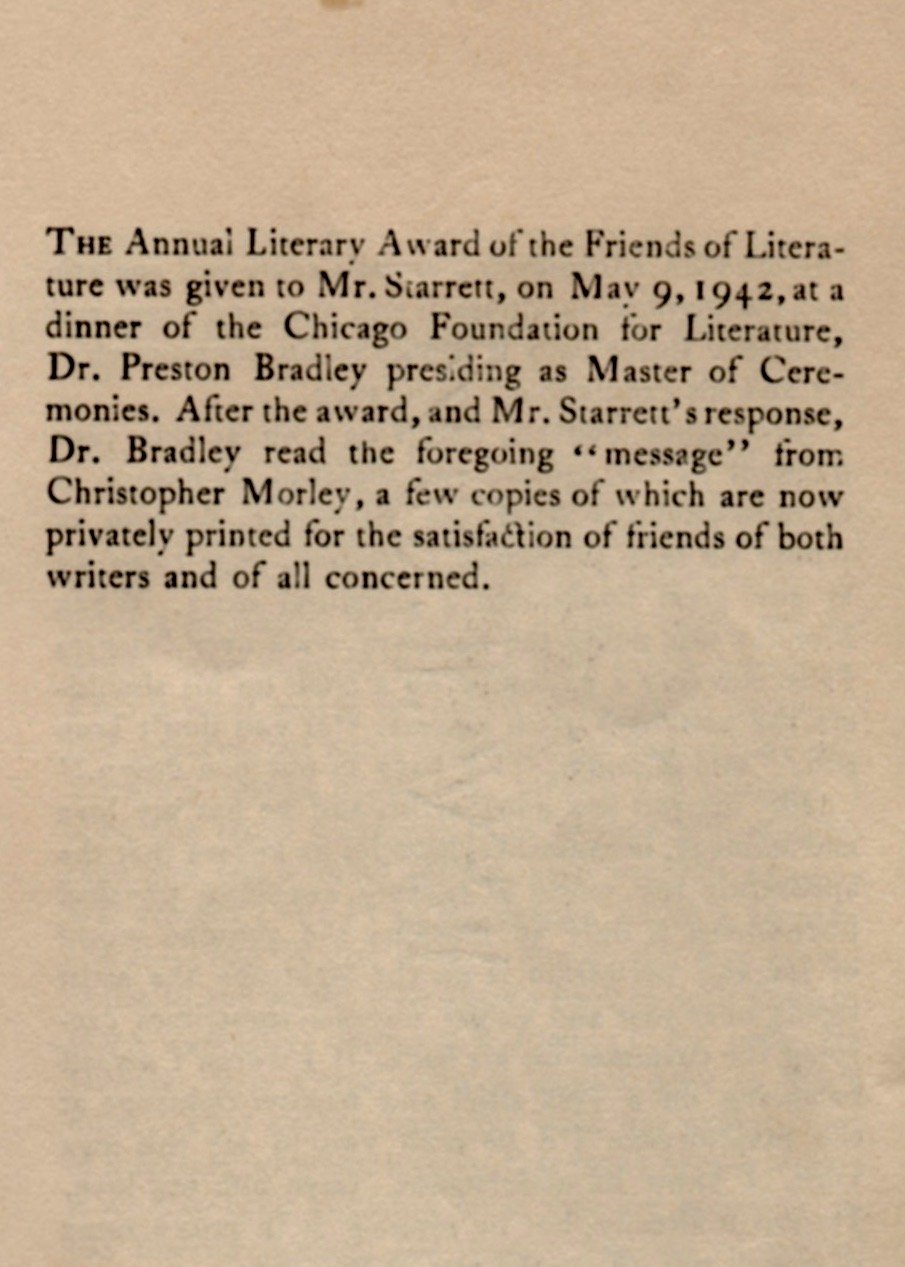
“I think Vincent must be weary of messages from me. Never was a poet given so many complimentary luncheons. . . .”
In addition to a robust correspondence, Morley was probably referring to the fact that he had also sent a message of congratulations 7 years earlier, when Starrett received the Annual Literary Award of the Friends of Literature on May 9, 1942. The award was given by the Chicago Foundation for Literature. Starrett had Morley’s 1942 letter published by his friend Edwin B. Hill in a limited edition.“Midlanders, Caxtonians and Effpublibes”
Morley’s playing with the names of the three groups that sponsored the award luncheon: The Society of Midland Authors, The Caxton Club and the Friends of the Chicago Public Library.
the Second paragraph:
The title page for Brillig.
“I have enormously enjoyed his new book, so aptly titled–”
Starrett’s last poetry anthology, Brillig, had just been published by The Dierkes Press of Chicago. The book contains a few allusions to another one of Starrett’s passions, “Alice in Wonderland.”
Morley adds some cheeky references to ‘Jabberwocky’ (“slithy toves”) in addition to his suggestion about the “impromptu definition” game which would have been fun, but not practical in a group of more than 400.
the Third paragraph:
“The Ballad of Brobdingag” is a lusty poem Starrett wrote many years before for private publication. It was reworked a bit for book publication in Brillig. Here are both versions, the original from 1925 and the 1949 version from the book.
Read them below and you’ll understand why Morley calls Starrett “impish, but never impudent.” You’ll also understand why, even in 1949, some might have been offended by the sexual nature of the poem.
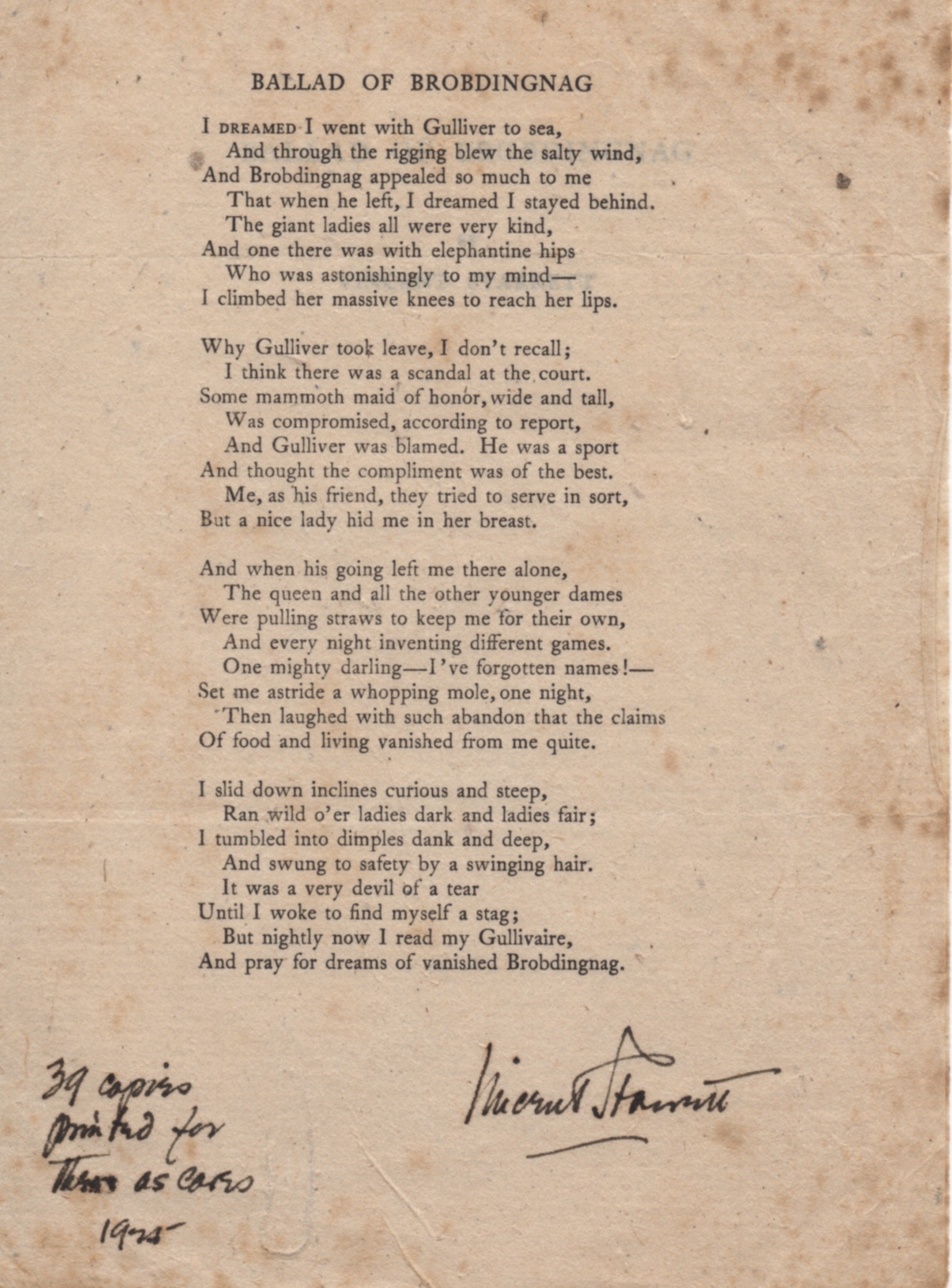
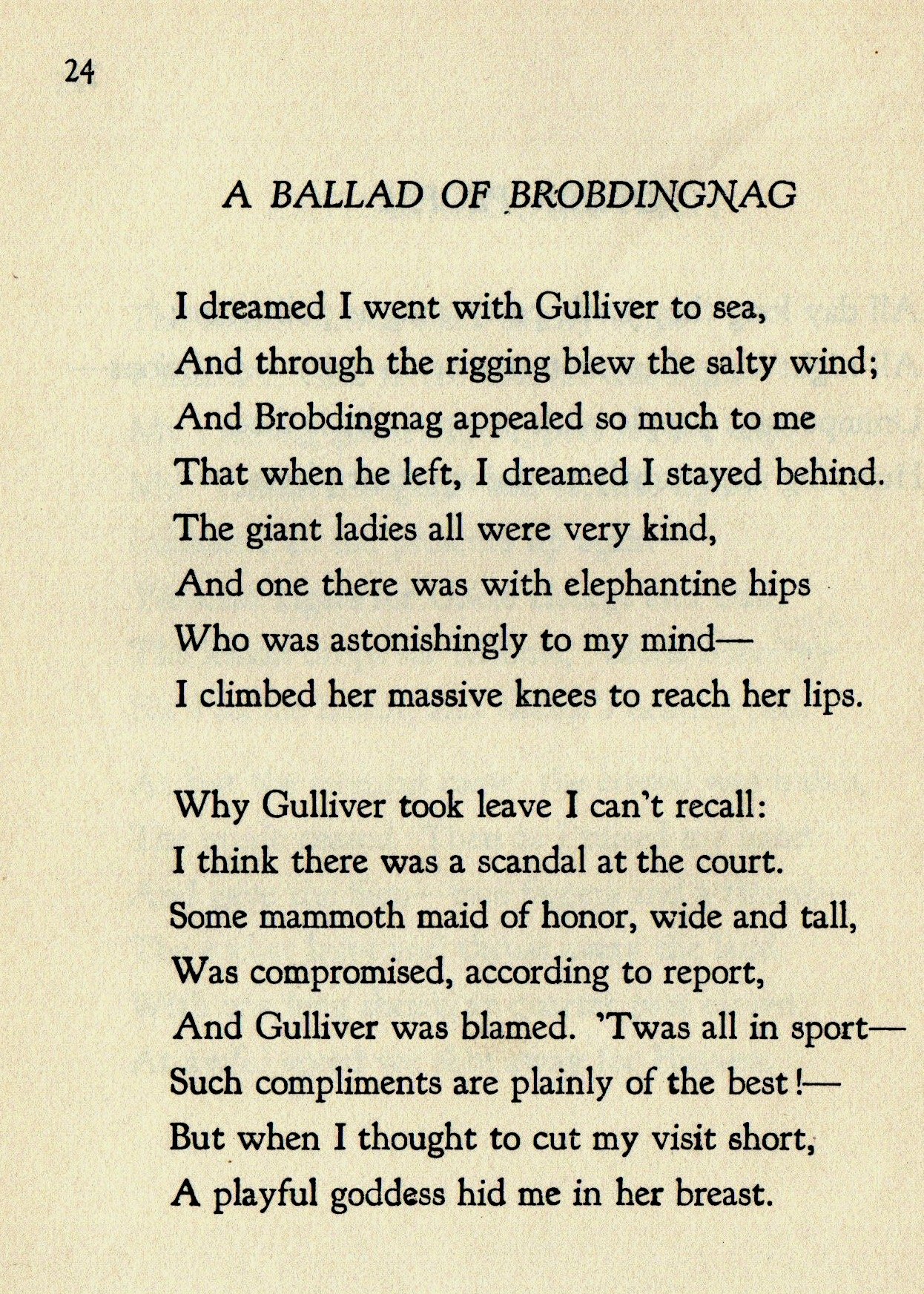

Referenced in the same paragraph is “Lines on a Lady,” which Mr. Morley says, “which will be, I hope, in every future anthology of epigram (the cocktail of literature).” So far as I know, the epigram has not caught on.
the Fourth and Fifth paragraph:
Morley, himself a poet, captures the many moods in Starrett’s poetry (melody, mischief, acids of despair, that silvery stoic attitude.)
The “Hackensack Marshes” are more commonly known as the Hackensack Meadowlands and located in New Jersey about 5 miles north of Newark and about 7 miles west of Manhattan. This is territory Morley would have known well. His audience? Not so much.
Starrett was his own harshest critic and would have agreed that some of his poetry would qualify as “occasional tripe.” By the late 1940s he had soured on versifying. He wrote little new poetry in the last 30 years of his life.
Here Morley allows that the playfulness in this letter is at least in part due to the “pellucid” gin that would make up his three hour lunches.
“Sitzfleisch” is what you are sitting on, and I don’t mean a chair.
Starrett liked to sleep until luncheon, then stay awake and work through the early morning hours, hence Morley’s reference to “midnight readings.”
“Since Men Learned Print, No Night is Wholly Black.”
According to Steve Rothman, the last line is from a poem of Morley's titled "The Watchman's Sonnet,” which he wrote when Columbia University Press celebrated its 50th anniversary in 1943. Columbia University Press had named Morley its Honorary Night Watchman in April of 1935, as the article from the April 30, 1935 New York Times attests.
So there you have it, Christopher Morley’s tribute to Vincent Starrett, poet, and another glimpse into the long and intricate relationship between these two Irregular icons.
Part I of Best. Day. Ever is available here.
